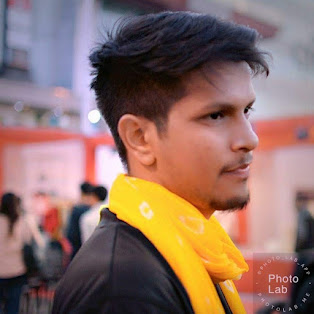Our Moon Has Blood Clots | Book Review| Summary
Our Moon Has Blood Clots | Book Review| Summary
“I was split apart by the woodcutter
My friend, my beloved, tell me:
who has cast a spell on you?”
I selected this book for my book club prompt read and after starting it, I was feeling like stumbling over my path, the book makes me feel so. Do you have the courage to delve into the painful discovery of fate? This is not just a book, it’s an agitated cry storming from the valley of God! Who’s cry is it, human’s humanity or God himself? Kashmir, is it heaven on earth or hell on earth?
This book is soaked in blood, it was a painstaking read. My brain became numb after reading this. What is it, another side of faith, another physiognomy of humanity? How could someone account for all the cruel events, all the deaths, it needs so much power to penned all the blood clots, my heart crunching, and tried to suck underneath my ribs. Thank you author for bringing light to another side of our moon.
I grew up hearing about the restless life of Kashmir but couldn’t understand why is this and what is all happening there. I can’t remember when I started hearing about Kashmir, maybe it started when my senses started but I couldn’t fathom what it was meant to be. Apparently, life isn’t settled down, their tormented life is still resting in a cliffhanger.
I can’t express thanks enough to didi for sending me this book and giving me a new perspective on this. This is a memoir from author and journalist Rahul Pandita who is indeed a Kashmiri pandit, who puts his hands on documenting his life journey. A must-read book. All the insights you need to understand the plight of Kashmiri pandits and the inhabitants, the Kashmiri pandits’ true-life story is here. The journey that started on the night of 19 January 1990, the exodus began, is not accomplished, yet to reach its destination… The true story of Kashmiri pandit’s life’s, how they are living today and how the life was before exodus..
It was started as a journey through a 14 years old teenager and he is still searching for his home.
A book that I can feel is smeared in blood. Is it possible that pain could be conveyed through words? Rahul Pandita’s strong, bold writing carried all the pain and suffering. The massacre, the pain of an unending journey, all vividly pictured and felt in my mind’s eye facilitated by the author. Read this book to get an alternate perspective of what is served as news. Brilliant writing, griping narration, time goes back and forth smoothly to capture the events and the emotional aspects. It served some truth from behind the news desk which people never get to know. Read this to know what it means to be homeless in our own country.
Homelessness is not just losing a house, it’s discharging childhood, disposing of roots. “.. you know, my mother said, our home in Kashmir had twenty-two rooms.”
“At the blue gate, Father stopped and turned back. He looked at the house. Looking back, there was a sense of finality in his gaze.” Indigenous peoples of Kashmir, the Hindus, were threatened, killed, eliminated by militants who were the representative of a civilization that was more than 5000 years old. This story and its devastating result only could be compared to the black era of the holocaust. I highly recommend this book, it also has a rich history of Kashmir from the beginning till now.
Posted by : Mili Das Know more about her
Repost from : Here
Picture Credit: Google







0 comments
We value your feedback and suggestions :)